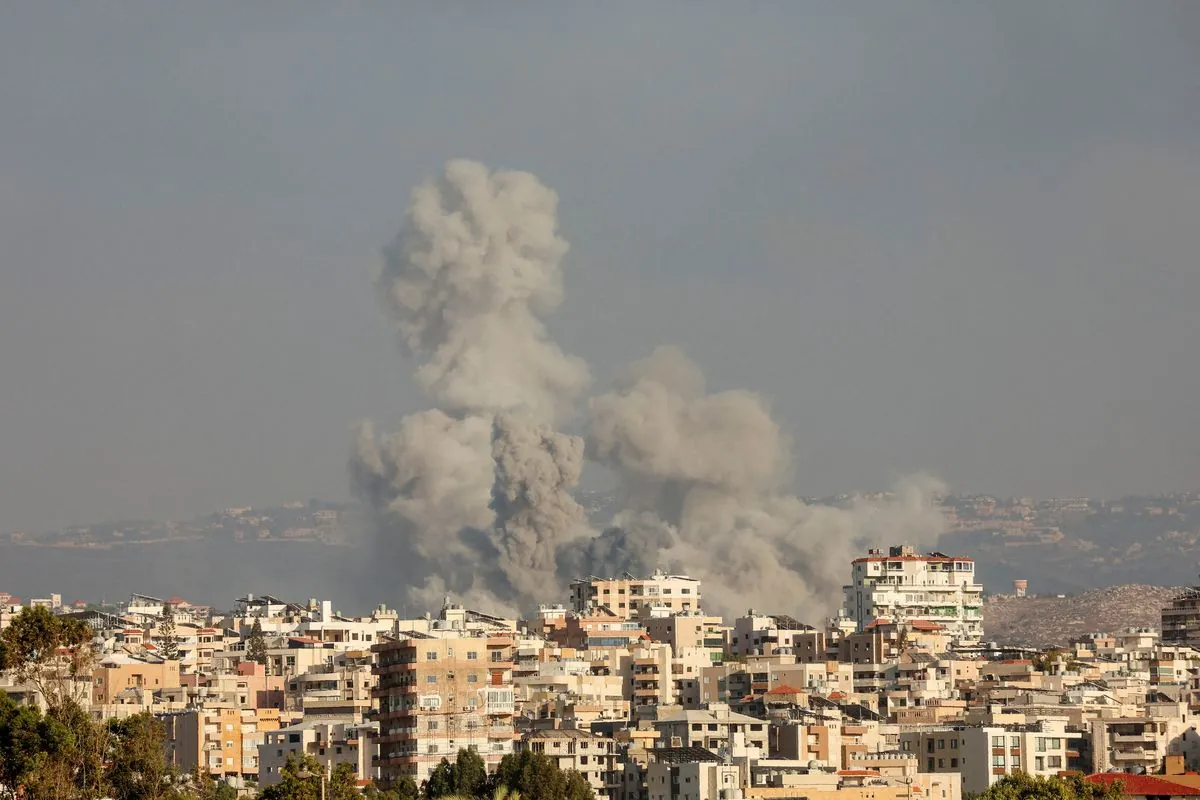In a significant shift of military focus, Israeli forces have intensified their operations in Lebanon while reducing strikes on the Gaza Strip. This change in strategy has sparked mixed reactions among Gazans and raised concerns about escalating regional tensions.
Mahmoud Basal, spokesman for Gaza's Civil Defense, reported a notable decrease in Israeli strikes on Gaza over the past two days. He stated, "There were only four" Israeli strikes in Gaza on Monday, a significant reduction from the previous daily average of at least 15. Basal also noted a diminished presence of drones in Gaza's airspace, providing some respite for residents.
The Gaza Strip, one of the world's most densely populated areas, has been under a blockade by Israel and Egypt since 2007 when Hamas took control of the region. The current conflict, which began nearly a year ago, has had devastating consequences for Gaza's 41 km long and 6-12 km wide territory.
Meanwhile, Israel has dramatically escalated its military operations in Lebanon, particularly over the past week. Hundreds of Israeli airstrikes on Monday resulted in over 550 fatalities and forced thousands to flee their homes. This intensification of strikes appears to be targeting Hezbollah, a major political and military force in Lebanon founded in 1985.
Gazans, while expressing sympathy for Lebanon, voiced frustration with their ongoing challenges. Najwa Dahman, a 40-year-old displaced Gazan living in a tent for the past seven months, emphasized the need to resolve the Gaza conflict before engaging in new confrontations. She stated, "What we've been enduring in Gaza for nearly a year cannot be compared to anywhere else in the world."
The conflict in Gaza, which began with a Hamas attack on Israel on October 7, 2023, has resulted in significant casualties. According to the Gaza Health Ministry, 41,467 Palestinians have been killed and 95,921 injured. However, these figures do not distinguish between civilians and combatants.
"Lebanon has become the most prominent story in the news and the focus of politicians, while Gaza has been sidelined, left waiting without anyone paying attention."
The escalation of tensions between Israel and Hezbollah has complicated international efforts to broker a cease-fire in Gaza and secure the release of remaining hostages. The United States, led by President Joe Biden, remains committed to these goals while also working to de-escalate tensions in Lebanon.
In response to the growing regional instability, the Pentagon announced the deployment of a small number of additional U.S. forces to the Middle East. Maj. Gen. Patrick Ryder, a Pentagon spokesman, emphasized the desire to "see temperatures be reduced" in the region.
As the conflict evolves, it's worth noting that Lebanon, with its complex political system based on confessionalism and 18 officially recognized religious sects, has the highest per-capita refugee population in the world. The country's capital, Beirut, once known as the "Paris of the Middle East," now faces the prospect of increased military activity along its border with Israel, known as the Blue Line.
The situation remains fluid, with international diplomats and leaders working to prevent further escalation and find a path towards peace in this volatile region.
